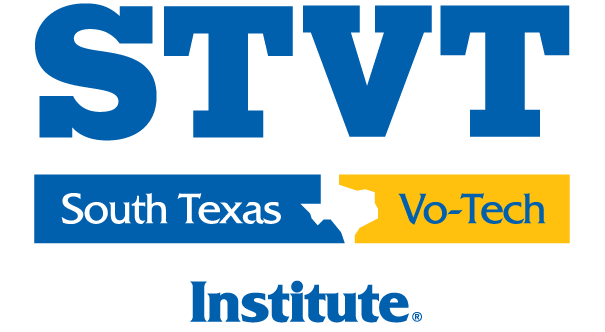In today’s fast-evolving world, the demand for skilled tradespeople in industries like heating, ventilation, and air conditioning (HVAC) remains high.¹ HVAC systems are vital to modern life, impacting everything from our comfort and safety to energy efficiency and environmental health. With buildings, offices, and homes constantly relying on well-functioning HVAC systems, the need for skilled, reliable HVAC technicians is undeniable.
For those looking to enter this rewarding field, vocational training offers a direct, hands-on pathway to an entry-level HVAC career. Unlike traditional academic programs, vocational training focuses on specific, practical skills that help prepare students for a career in HVAC. This article explores the many benefits of vocational training for aspiring HVAC technicians, from hands-on experience led by industry-experienced instructors to career services to helping you prepare for HVAC certifications. Discover why vocational training is often the ideal choice for those looking to start a career as an HVAC technician and how it prepares them for long-term success in a growing industry.
Learn Technical Hands-On HVAC Skills
One of the most valuable aspects of vocational training for HVAC technicians is the opportunity to learn practical, technical hands-on HVAC skills in simulated real-world settings.
In these programs, students get direct, supervised experience working with HVAC equipment, tools, and systems they’ll likely encounter daily in their careers. This includes learning how to install, maintain, and repair various types of HVAC systems, from residential units to complex commercial setups. Students can learn HVAC skills to troubleshoot issues such as faulty compressors, refrigerant leaks, and wiring malfunctions, preparing them for the common challenges they may face as entry-level HVAC technicians.
Additionally, hands-on training covers essential safety practices, such as working with refrigerants and managing electrical hazards, which are critical for both the technician’s safety and the integrity of the HVAC system. They’ll also be able to gain experience with diagnostic tools like multimeters, manifold gauges, and psychrometers, enabling them to accurately assess system performance and identify problems quickly.
By learning these hands-on skills, students can graduate with a high degree of technical competence and practical knowledge. This experience can make students highly attractive to potential employers, who recognize the value of training that mirrors real-world scenarios. As HVAC technology evolves, vocational training adapts, ensuring that students are well-versed in the latest systems, energy-efficient practices, and environmentally friendly techniques, further enhancing their HVAC skills required for today’s job market.
Guidance from Industry-Experienced HVAC Instructors
A key benefit of vocational training for future HVAC technicians is the access to expert guidance from HVAC instructors with real-world experience in the industry. Vocational schools prioritize hiring instructors who have spent years working as HVAC technicians themselves, bringing invaluable hands-on knowledge to the classroom. This firsthand industry experience gives students an inside perspective on the HVAC field that goes beyond textbooks, providing insights into the challenges and best practices they may encounter on the job.
Industry-experienced instructors help bridge the gap between theoretical concepts and practical application, allowing students to learn not only the “how” but also the “why” behind various HVAC techniques. For example, instructors can offer nuanced tips on troubleshooting difficult system issues, managing unexpected on-site challenges, and using diagnostic tools more effectively. With stories and examples from their own careers, these HVAC instructors make complex concepts relatable and easier to understand, giving students a realistic picture of what to expect in the field.
Moreover, industry-experienced instructors stay up to date with industry trends, including the latest tools, technologies, and regulatory changes. They guide students through hands-on practice with cutting-edge HVAC systems, ensuring graduates are well-prepared for the demands of a rapidly evolving job market. Many instructors also bring valuable connections within the HVAC industry, which can lead to networking opportunities, internships, and even job recommendations.
The mentorship provided by seasoned HVAC instructors not only enhances students’ technical skills but also instills confidence as they prepare to enter the workforce. These instructors help build a strong foundation, teaching the importance of safety, efficiency, and professionalism, qualities that are essential for success in the HVAC industry.
Prepare You for Certifications
A critical component of a successful HVAC career is obtaining industry-recognized certifications, which validate a technician’s skills and knowledge. Certifications such as EPA 608 are legally mandated to work with certain HVAC systems. Vocational HVAC training programs are designed with certification requirements in mind, helping students prepare thoroughly for these exams as they progress through their studies.
Vocational HVAC programs incorporate certification-focused training modules, covering both the technical knowledge and practical skills necessary to pass certification exams confidently. For instance, EPA 608 certification, which is required for handling refrigerants, requires a strong understanding of environmental regulations, refrigerant types, and safety protocols. Vocational instructors provide specific lessons and practice tests on these topics, helping students become well-versed in environmental laws and best practices for refrigerant handling.
Industry certifications significantly boost a technician’s credibility, job opportunities, and potential earnings. Through a combination of hands-on training, targeted lessons, and expert guidance, vocational programs give aspiring HVAC technicians the preparation they need to pass their exams and begin their careers as certified professionals.
Career Services
One of the standout benefits of enrolling in a vocational HVAC program is access to dedicated career services, which play a crucial role in helping students transition smoothly from training to employment. These services, often included as part of the program, are designed to guide graduates through the job search process and connect them with reputable employers in the HVAC industry. For many students, career services can make a significant difference in finding a job that aligns with their skills and career goals.
STVT’s career service department also organizes job fairs and networking events, creating direct pathways for students to explore job opportunities. Additionally, they provide support in creating professional résumés and cover letters tailored to the HVAC industry. The Career Services team also helps students highlight their technical skills and hands-on experience effectively, presenting a polished and professional profile to potential employers. They also offer guidance on interview preparation, sharing industry-specific insights that boost confidence and readiness for real-world job interviews.
By leveraging these career services, HVAC graduates can be confident, knowing they have the tools, resources, and support to find fulfilling employment opportunities. This focus on career readiness not only enhances graduates’ job searches but also helps them build lasting, successful careers in a growing and rewarding industry.
Next Steps
Vocational training offers aspiring HVAC technicians a fast, practical, and affordable pathway to a rewarding career in the HVAC field. From hands-on technical skills and expert guidance to certification preparation and career support. As HVAC systems continue to play an essential role in residential and commercial spaces, trained technicians remain vital to keeping our homes and buildings functioning. For those looking to build a stable, fulfilling career, vocational training provides the skills, confidence, and credentials to thrive in the HVAC industry. If you want to pursue a career as an HVAC technician contact STVT over the phone at 866-480-9766 or submit this form for more information.
Disclaimer: Information within this blog is for general information purposes only. STVT does not assume or guarantee certification/licensures, specific job/career positions, income earning potential, or salary expectations based on the programs offered at STVT. Career and program information statements in this blog do not guarantee that programs or other information mentioned are offered at STVT.
___________________________________________________________________________________________________________________



